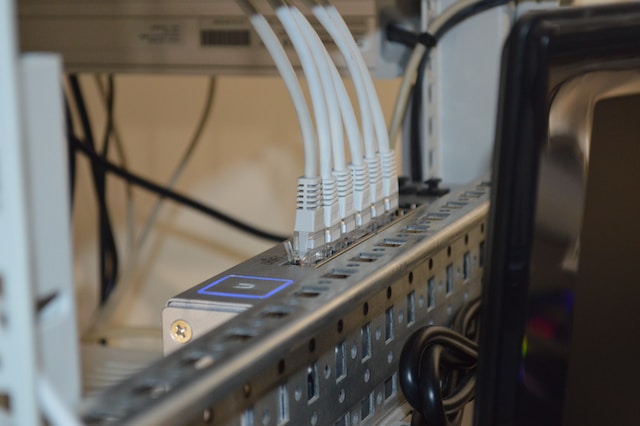Something that is often overlooked by the general public is the importance of Event Wifi, it’s sometimes taken for grated how complex and valuable it is for an event. In this blog post we’ll talk about how it works and why it’s so important. Obedio is a brand that helps events get wifi, we run Notspotbroad which specialises in getting events online. We have lots of case studies which you can read here.
If you want to get in touch with us about setting up wifi for your event click here.
How important is event wifi?
Let’s face it, the world is constantly online now, having an event without wifi 10 years ago wouldnt have been an issue but now it’s an essential part of an event. Wifi is used for production, online payments for food and drink, guest wifi for those posting on social media, and live streams for artists, event wifi is what makes all of this possible. Sharing experiences is key part of modern life so connectivity is key.
Recent research figures show that in the first quarter of 2023, the average time spent on the internet per person was 400 minutes (six hours and 40 minutes) per day. Showing how online people today are.
We’ve all attended events where the WiFi was either unreliable or completely absent, whether it was for personal use or experiencing technology hiccups due to connectivity issues. Such situations can significantly detract from the overall event experience. The effectiveness of an event should never be jeopardized by subpar WiFi, as the connectivity infrastructure must undergo thorough testing before the event commences. A seamless and dependable WiFi connection is integral to ensuring the success of any event, as it plays a pivotal role in facilitating smooth interactions and technology functionalities for all participants.


Why not use 4G or 5G
Although these technologies are getting better, it’s still not reliable enough. Different phone networks offer better coverage than others and when lots of people are using it in one place it can get slow and unreliable.
While 4G and 5G networks offer fast and reliable mobile connectivity, there are certain considerations and challenges that may make them less ideal for exclusive use at events.
- Network Congestion: In densely populated event venues, the high number of users accessing 4G or 5G networks simultaneously can lead to network congestion. This congestion may result in slower data speeds and reduced reliability, especially during peak usage times.
- Limited Bandwidth: Event organizers must share the available bandwidth with the general public, potentially limiting the data speed and overall performance for attendees. This limitation becomes more pronounced as the number of connected devices increases.
- Variable Signal Strength: The strength of 4G and 5G signals can vary depending on the event location, the density of mobile users, and the presence of obstacles. This variability can result in uneven coverage and may lead to connectivity issues in certain areas of the venue.
- Cost Considerations: Utilizing mobile networks for event connectivity may result in high data usage costs, both for the organizers and attendees. Event-specific WiFi solutions often provide a more cost-effective and controlled alternative.
- Security Concerns: Event organizers may have specific security requirements for data transmitted during the event. While 4G and 5G networks are generally secure, dedicated event WiFi networks can offer additional layers of security and customization to meet specific event needs.
- Customization and Control: Event-specific WiFi allows organizers to tailor the network to meet the unique demands of the event. This includes setting up multiple access points, load balancing, and implementing rate limiting to ensure a smooth and controlled connectivity experience.
- Capacity Planning: Dedicated event WiFi networks can be strategically designed and deployed to handle the expected number of users and devices. This level of capacity planning is challenging to achieve on public mobile networks where the user base is unpredictable.
Wifi is important for commercial infrustrature
When it comes to modern events, many venues require people to use their phones to access tickets, venue information like directions and timings of events.
Reliable event WiFi becomes a linchpin for the seamless execution of various commercial activities within these settings.
- Client Engagement: Events often provide businesses with opportunities to engage with clients, demonstrate products or services, and establish meaningful connections. A robust WiFi network ensures that these interactions are smooth, allowing for real-time demonstrations, instant information sharing, and effective communication.
- Sales and Transactions: For businesses conducting sales or transactions at events, a dependable WiFi connection is essential. It facilitates secure and swift payment processing, enhances the efficiency of point-of-sale systems, and contributes to a positive customer experience.
- Marketing and Brand Promotion: Effective marketing at events involves leveraging digital platforms, social media, and interactive technologies. A strong WiFi infrastructure supports these initiatives by enabling real-time social media updates, interactive displays, and immersive brand experiences, thereby maximizing the impact of marketing efforts.
- Data Analytics: WiFi connectivity at events facilitates the collection of valuable data on attendee behavior, preferences, and engagement levels. This data, when analyzed, provides insights that can inform future marketing strategies, product development, and overall business decision-making.
- Remote Connectivity for Staff: Events often involve staff members who require real-time access to company systems, inventory, or client information. A reliable WiFi network ensures that staff can stay connected and perform their tasks efficiently, contributing to the overall operational success of the event.
- Collaborative Opportunities: Networking and collaboration are fundamental aspects of events, and a strong WiFi connection fosters seamless communication and collaboration among event participants. This is especially crucial for businesses seeking partnerships, alliances, or collaborations within the event space.


Wifi is important for environment
WiFi at events not only enhances connectivity but also plays a pivotal role in fostering environmental sustainability by reducing reliance on traditional paper-based practices. Here’s how WiFi contributes to a greener and more eco-friendly event environment:
- Paperless Communication: The availability of robust WiFi networks encourages paperless communication. Attendees can access event information, schedules, and announcements digitally, eliminating the need for printed materials such as brochures, pamphlets, and event agendas. This reduction in paper usage contributes to overall resource conservation.
- Digital Ticketing and Check-Ins: WiFi facilitates the implementation of digital ticketing systems and online check-ins. Attendees can seamlessly access event spaces by presenting electronic tickets on their devices, eliminating the necessity for physical paper tickets and reducing waste.
- Virtual Event Components: WiFi enables the integration of virtual components in events, such as digital presentations, webinars, and online collaboration tools. By providing alternatives to physical attendance, events can reduce the environmental impact associated with travel, lowering carbon emissions and promoting eco-friendly practices.
- Smart Waste Management: WiFi-connected sensors and devices can be employed for smart waste management at events. These sensors can monitor waste bins, optimizing waste collection schedules and contributing to more efficient waste disposal practices, ultimately reducing the environmental footprint of the event.
- Remote Participation: With reliable WiFi, events can offer remote participation options. Attendees who may not be able to physically attend can still engage in sessions, discussions, and networking activities virtually. This not only broadens the event’s reach but also reduces the need for extensive travel, leading to lower carbon emissions.
- Energy Efficiency: WiFi infrastructure can be optimized for energy efficiency. By implementing intelligent systems that adjust power consumption based on demand, event organizers can reduce energy usage and contribute to a more sustainable and eco-friendly event environment.
- Digital Surveys and Feedback: Instead of distributing paper surveys and feedback forms, events can leverage WiFi connectivity to implement digital survey tools. Attendees can provide feedback electronically, streamlining the data collection process and minimizing paper waste.
- Real-time Information Updates: WiFi enables event organizers to provide real-time updates and information to attendees through mobile apps and digital platforms. This reduces the need for printed announcements and signage, contributing to a more eco-conscious event.
Why is event wifi different from normal wifi?
The WiFi we commonly use in our homes and small offices differs significantly from the connectivity required in a live event setting. Typical home and small office WiFi can reliably support around 10-20 simultaneous users before experiencing performance issues, mainly influenced by the internet connection speed and the WiFi router’s capabilities.
In contrast, an event WiFi provider introduces high-speed connections to the venue and installs temporary enterprise-grade WiFi equipment designed to accommodate hundreds or even thousands of users. When the venue already possesses a dependable internet connection, the provider simply installs the necessary WiFi equipment. For added reliability, a professional event WiFi supplier may recommend the implementation of backup lines to mitigate the risk of primary line failures, coupled with onsite technical support to continuously monitor and address any network issues.
- Uninterrupted Connectivity: Reliable Event WiFi ensures continuous and stable internet access, preventing disruptions during critical moments of presentations, live streams, or interactive sessions.
- Optimal Performance: A robust WiFi infrastructure guarantees optimal performance, minimizing latency, and providing a smooth online experience for attendees engaging in various activities such as live streaming, multimedia content access, and real-time updates.
- Global Audience Engagement: Dependable Event WiFi allows for broader participation by facilitating the connection of numerous devices simultaneously. This global reach enhances audience engagement, enabling people worldwide to actively participate in events, webinars, or conferences.
- Seamless Interactions: Attendees can seamlessly interact with event content, share information, and engage in real-time conversations without delays or disruptions, fostering a more immersive and participatory experience.
- Enhanced Presentations: Speakers can confidently deliver presentations without concerns about connectivity issues, ensuring that the audience receives information in a clear and timely manner, contributing to the overall success of the event.
- Social Media Sharing: Reliable WiFi supports the instant sharing of event highlights, photos, and updates on social media platforms. This, in turn, amplifies the event’s reach and impact, creating a buzz among a broader audience.
- Interactive Technologies: Events incorporating interactive technologies, such as audience polling or virtual reality experiences, benefit from a stable WiFi foundation. Attendees can actively participate in these features without encountering lags or disruptions.
- Real-Time Updates: Attendees can receive and respond to real-time updates, announcements, and changes to the event schedule, ensuring that everyone stays informed and engaged throughout the entire event.
Investing in dependable Event WiFi is not just about providing internet access; it’s a strategic decision that directly influences the success and overall experience of participants, making it a crucial component of event planning and execution.


Technical stuff for event wifi
There’s a number of technical terms that we use when it comes to event wifi, read more if you want some technical jargen!
Contention in event wifi
Contention refers to the competition or conflict among multiple devices or users attempting to access the network simultaneously. As events often attract a large number of attendees with various devices seeking connectivity, contention can arise when these devices compete for limited bandwidth and resources. This contention can result in decreased network performance, causing slow internet speeds, latency, and potential disruptions in service. Event organizers and WiFi providers strategically manage contention by implementing advanced networking solutions, optimizing access points, and employing bandwidth management techniques. Mitigating contention ensures a smoother and more reliable WiFi experience for all event participants, preventing issues associated with overcrowded networks and promoting seamless connectivity throughout the event venue.
Rate Limiting
This refers to the deliberate control or restriction imposed on the amount of data or network traffic that individual devices or users can generate within a specified timeframe. This practice is crucial in preventing network congestion, enhancing overall stability, and ensuring a fair distribution of available bandwidth among all connected devices. By implementing rate limiting, event organizers and WiFi providers can maintain a balance between the diverse connectivity needs of attendees and prevent any single user or device from monopolizing the network resources. This proactive measure helps optimize network performance, mitigate the risk of slowdowns or disruptions, and ultimately delivers a more equitable and reliable WiFi experience for all participants at the event.
Upload and Download speeds
Upload and download speed refers to data transfer directions between devices and the network. Upload involves sending data from a device to the network, while download pertains to receiving data from the network to a device. Efficient management of upload and download speeds is essential for ensuring a smooth and responsive internet experience during events. Event organizers and WiFi providers prioritize optimizing both upload and download speeds to accommodate the diverse needs of attendees, ranging from live streaming and content sharing to accessing multimedia content. By carefully balancing and enhancing these data transfer capabilities, organizers can guarantee a seamless and enjoyable connectivity experience for participants, allowing them to interact with event content, share information, and engage in online activities without interruptions or delays.
Load Balancing
In the realm of event WiFi, load balancing is a critical strategy employed to distribute network traffic evenly across multiple access points or network resources. This ensures that no single access point becomes overwhelmed with too much data, preventing congestion and optimizing overall network performance. Load balancing is particularly vital during events where a large number of devices are concurrently connecting to the WiFi network. By intelligently distributing the load, event organizers and WiFi providers can avoid bottlenecks, reduce latency, and enhance the reliability of the network. This proactive approach helps maintain a consistent and high-quality user experience, allowing attendees to seamlessly connect to the WiFi network without experiencing slowdowns or disruptions, even in the midst of heavy usage scenarios.
Event wifi with Obedio
Hopefully from reading this blog post you’ll have a better understanding about why event wifi is so important for modern events and venues. Having a fast and reliable broadband for events will improve guest happiness, as well as help the event in a number of different ways. A reliable connection will ensure that any POS transactions go through quickly, reducing time customers are waiting. Any digital tickets will be easily accessed, which also reduces the need to print tickets, helping the environment and potential post event clean up. We’ve learnt and made sense of the event wifi jargon and know what it takes to run an effect smoothly by keeping it online!
If you are looking to run an event, then get in touch with Obedio today!
